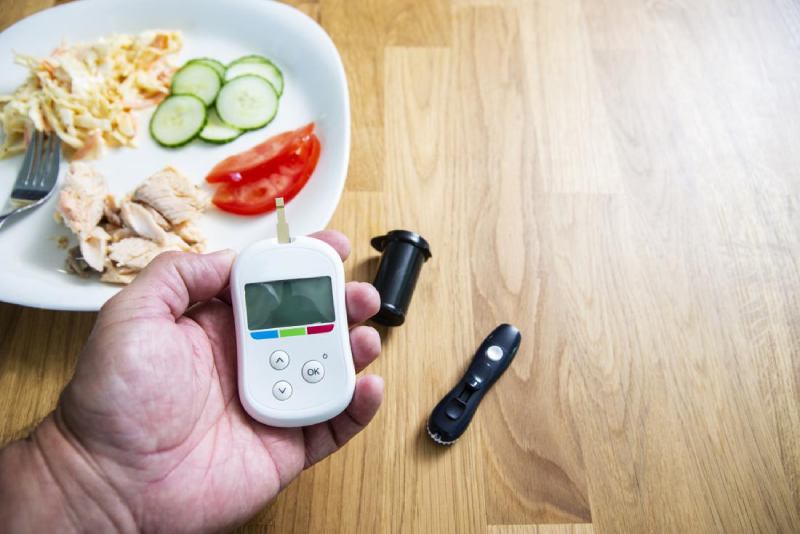Blood sugar, also known as blood glucose, is a vital energy source for our bodies. It fuels our cells, allowing them to function properly. However, when blood sugar levels become chronically elevated, it can lead to a condition called hyperglycemia. This condition, if left unmanaged, can cause serious health complications.
This comprehensive guide delves into the world of high blood sugar symptoms, empowering you with knowledge for better blood sugar management and overall health.
Understanding Blood Sugar Regulation
Before exploring the signs and symptoms of high blood sugar, let’s establish a foundation by understanding how our bodies regulate blood sugar levels. The main players in this process are:
- Glucose: The primary sugar our bodies use for energy.
- Insulin: A hormone produced by the pancreas that helps usher glucose from the bloodstream into cells.
- Glucagon: Another hormone from the pancreas that works opposite to insulin, raising blood sugar levels when they dip too low.
When we consume carbohydrates, they break down into glucose, which enters the bloodstream. This rise in blood sugar triggers the pancreas to release insulin. Insulin acts like a key, unlocking the doors of our cells and allowing glucose to enter for energy production. This keeps blood sugar levels within a healthy range.
What is High Blood Sugar (Hyperglycemia)?
Hyperglycemia, simply put, is high blood sugar. It occurs when the body either doesn’t produce enough insulin or the cells become resistant to insulin’s effects. This leads to an excess of glucose circulating in the bloodstream, instead of being used by the cells for fuel.
Causes of High Blood Sugar
Several factors can contribute to high blood sugar:
- Diabetes: This chronic condition disrupts the body’s ability to produce or utilize insulin effectively. There are three main types:
- Type 1 Diabetes: The body attacks insulin-producing cells in the pancreas, leading to little or no insulin production.
- Type 2 Diabetes: The body either doesn’t produce enough insulin or becomes resistant to its effects.
- Gestational Diabetes: A temporary form of diabetes that develops during pregnancy.
- Prediabetes: A condition where blood sugar levels are higher than normal but not high enough to be classified as diabetes.
- Certain medications: Some medications, like steroids, can elevate blood sugar levels.
- Medical conditions: Conditions like Cushing’s syndrome, polycystic ovary syndrome (PCOS), and hyperthyroidism can affect blood sugar regulation.
- Diet: Excessive consumption of sugary drinks, refined carbohydrates, and unhealthy fats can contribute to high blood sugar.
- Lifestyle factors: Lack of physical activity, stress, and sleep deprivation can also play a role.
The Spectrum of High Blood Sugar Symptoms
The signs and symptoms of high blood sugar can vary depending on the severity of the condition and the individual experiencing them. Here’s a breakdown of the symptoms along a spectrum:
Early Signs (Blood sugar levels moderately elevated)
- Increased thirst (polydipsia): The body attempts to dilute the excess sugar in the blood, leading to increased thirst.
- Frequent urination (polyuria): The kidneys try to expel the excess sugar through urination, leading to frequent trips to the bathroom.
- Fatigue and lethargy: Cells aren’t receiving enough glucose for energy production, resulting in tiredness.
- Headache: Dehydration due to frequent urination can contribute to headaches.
- Blurred vision: High blood sugar can affect the lenses in your eyes, causing temporary blurred vision.
Later Signs (Blood sugar levels significantly elevated)
- Increased hunger (polyphagia): The body, despite having enough glucose in the bloodstream, can’t access it due to insulin resistance, leading to hunger pangs.
- Slow-healing wounds: High blood sugar can impair the body’s ability to heal wounds.
- Skin infections: Increased blood sugar can create a breeding ground for fungal and bacterial skin infections.
- Weight loss: The body may start breaking down muscle for energy when it can’t access glucose effectively, leading to unintended weight loss.
Severe Signs (Can indicate diabetic ketoacidosis, a serious complication)
- Fruity-smelling breath: A sign of ketones, produced by the body when it breaks down fat for energy due to a lack of insulin.
- Nausea and vomiting: High blood sugar can irritate the stomach and cause nausea and vomiting.
- Shortness of breath: The body may struggle to breathe due to the buildup of ketones.
- Confusion and drowsiness: Ketones can affect brain function, leading to confusion and drowsiness.
- Abdominal pain: High blood sugar can cause stomach pain.
Importance of Early Detection and Management
Early detection of high blood sugar is crucial to prevent complications. If you experience any of the symptoms mentioned earlier, especially the early signs, it’s vital to consult a healthcare professional. They will perform a blood test to measure your blood sugar levels and diagnose any underlying conditions like diabetes or prediabetes.
Living Well with Healthy Blood Sugar Levels
Fortunately, there are several steps you can take to manage your blood sugar and improve your overall health:
- Diet: Focus on a balanced diet rich in fruits, vegetables, whole grains, and lean protein. Limit sugary drinks, refined carbohydrates, and unhealthy fats.
- Exercise: Regular physical activity helps your body utilize insulin more effectively and lowers blood sugar levels. Aim for at least 30 minutes of moderate-intensity exercise most days of the week.
- Weight management: If you’re overweight or obese, losing even a modest amount of weight can significantly improve your blood sugar control.
- Medications: If lifestyle changes aren’t enough, your doctor may prescribe medications like insulin or oral medications to help regulate blood sugar levels.
- Stress management: Chronic stress can raise blood sugar levels. Practice relaxation techniques like yoga, meditation, or deep breathing to manage stress effectively.
- Regular check-ups: Schedule regular appointments with your doctor to monitor your blood sugar levels and adjust your treatment plan if needed.
Additional Tips for Optimal Blood Sugar Management
- Monitor your blood sugar levels: Regularly monitoring your blood sugar levels at home can help you understand how your body responds to different foods and activities.
- Stay hydrated: Drinking plenty of water helps your body flush out excess sugar through urination and prevents dehydration, a common symptom of high blood sugar.
- Get enough sleep: Aim for 7-8 hours of quality sleep each night. Sleep deprivation can disrupt hormones that regulate blood sugar.
- Don’t smoke: Smoking can damage insulin-producing cells and worsen blood sugar control.
- Join a support group: Connecting with others who are managing high blood sugar can provide invaluable emotional support and offer tips for navigating this condition.
Conclusion
High blood sugar, if left unchecked, can lead to serious health problems. However, by recognizing the symptoms, seeking early diagnosis, and implementing healthy lifestyle changes, you can effectively manage your blood sugar and live a long and healthy life. Remember, knowledge is power. This guide equips you with the information you need to take charge of your blood sugar health and feel your best.

 Diabetology1 week ago
Diabetology1 week ago
 Diabetology4 days ago
Diabetology4 days ago
 Diabetology7 hours ago
Diabetology7 hours ago
 Diabetology7 hours ago
Diabetology7 hours ago







